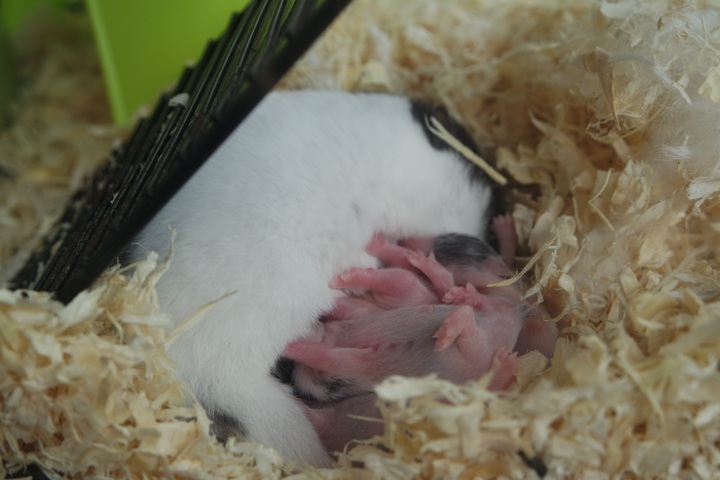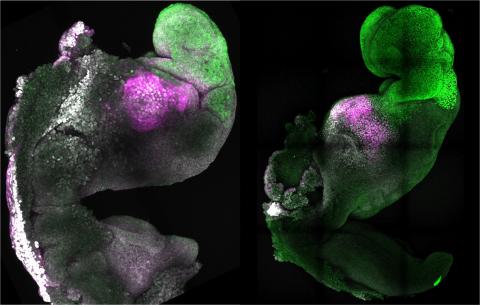Reaction: spermidine supplementation improves fertility in aged female mice
Spermidine is a naturally occurring compound that has been linked to increased longevity in some organisms. New research shows that supplementation with this compound improves oocyte quality and fertility in older female mice. If its action and safety in humans is confirmed, the authors argue that it could serve as a therapeutic strategy to "improve the reproductive outcome of older women, either through natural pregnancy or assisted reproductive technologies". The results are published in the journal Nature Aging.

Rocío Núñez Calonge - ratonas mayores
Rocío Núñez Calonge
Scientific Director of the UR International Group and Coordinator of the Ethics Group of the Spanish Fertility Society
The study is novel, well-designed, methodologically sound and of high quality. The authors have shown that spermidine is a critical metabolite in the preservation of oocyte quality during oocyte ageing. Spermidine supplementation can promote oocyte maturation, improve fertilisation capacity, as well as the potential for early embryonic development, increasing female fertility in aged female rats.
Mitochondria are organelles involved in cell metabolism, essential for the proper functioning of the cell. As cells age, the number of altered mitochondria increases. Mitophagy is a specialised form of autophagy that acts by removing dysfunctional mitochondria in the body to maintain an adequate quantity and quality of mitochondria. Spermidine is a polyamide with mitophagy properties, which has been extensively studied. Spermidine has been found (Science. 2022 Oct 28) to function as an autophagy inducer to participate in a variety of cellular processes associated with the progression of ageing in all species and implicated in immunological mechanisms and even with anti-cancer properties.
There is also published work linking the amount of spermidine to low ovarian reserve in infertile women (Reprod Sci. 2023 Feb).
In similar work this year (Life Sci. 2023 Nov 1), Niu et al. administered 10 mg/kg or 15 mg/kg spermidine to rats and found that it improved ovarian function and reduced oxidative stress.
In the work of Zhang et al. they administered a higher amount: 50 mg/kg spermidine, and analysed not only ovarian function in terms of the increase in follicles in the ovaries, but also the fertilisation rate and the influence on embryo development. As a result, by supplementing aged female mice with spermidine, they almost doubled the size of their litters. But the main novelty of this study is the verification of how the mitophagic effect of spermidine occurs in the ovary after supplementation.
The implications of this work are important in relation to human fertility.
Although, as mentioned above, some work has been carried out on the relationship between spermidine and low ovarian reserve, we are not aware of any study in which the metabolite has been exogenously administered to elderly women or women with low ovarian reserve. The study of this metabolite in humans could help to improve the quantity and quality of oocytes in women with these fertility problems.
An important question for future work will be to investigate the molecular basis of decreased spermidine levels in aged oocytes.
[On possible limitations of the study that need to be taken into account]:
Reproductive ageing in women involves a number of complex mechanisms not yet understood such as nuclear and cytoplasmic maturation of oocytes, including polar body extrusion, chromosomal euploidy, mitochondrial function, fertilisation capacity and embryonic developmental potential.
Spermidine, as demonstrated by Zhang et al, acts at the mitochondrial level, which is only one of many processes involved in oocyte quality. Therefore, the improvement of potential reproductive capacity with spermidine administration has to be considered only at this level. In other words, do not expect more benefits than it can offer.
On the other hand, studies in humans must be carried out with all the guarantees of quality and avoiding any type of harm. A recent study (Theriogenology. 2021 Jul 1) has shown that supraphysiological doses (150 mg/kg) of spermidine in rats induces oxidative stress in the ovary. Therefore, finding the exact dose that promotes ovarian function, without being harmful, is a future challenge.
Yu Zhang et al.
- Research article
- Peer reviewed
- Experimental study
- Animals



